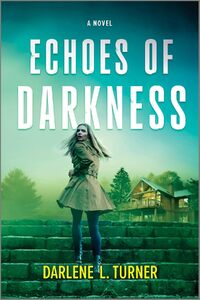Who was the greatest influence in my life? I can only answer my mother. For me,
the stars were aligned perfectly when I was born to a successful writer. A
preemie, I debuted six weeks early at four pounds two ounces, forcing me to
spend time in an incubator at Fairview Hospital in Minneapolis. My mother,
Marguerite McClain, a sophisticated Barbara Stanwych look-a-like, visited me
every other day, calling the hospital alternate days to ask what I’d gained in
fractions of an ounce. Once I’d reached a hefty five pounds, I was released to
my glamorous mother and handsome dark-haired father who brought me home to my
two-year-old brother Mickey who called me his little hitta.
Soon after the toddler stage, I discovered that all mothers didn’t write
stories. They didn’t sit in the attic two hours a day, sweltering in summer and
freezing in winter, tapping on the keys of a black standard typewriter.
“I’m going upstairs to write” my mother would announce to my brother and me, and
off she’d go, armed with cigarettes, a Coke and a Hershey bar. Mickey and I
never touched her stash of goodies, intuitively realizing it was what kept her
going.

At the start of her career, my mother wrote for small markets such as Oral
Hygiene, a dental magazine, Hi and The Catholic Miss,
magazines for parochial school children. Located in a beautiful mansion perched
on a hill in historic Groveland Terrace.
On arrival inside, she’d announce herself to one of the staff women scattered
around what had once been the living room. After receiving the okay to see
editor Harold (Sandy) Sandberg, we’d tackle two flights of stairs up a grand
staircase to his office. Ecstatic to have reached the third floor, we would find
Sandy holding court behind his huge wooden desk.
“How the hell are you?” he would ask, offer each of us a chilled Coke in a green
glass bottle from a tiny refrigerator. Amenities over, my mother would hand him
her manuscript. Waiting, I would study his face from where we sat on leather
couch facing his desk. After ten minutes or so of silence, he’d speak into his
intercom, ordering an assistant to cut a check. Another sale!
By the time my brother and I were in our last years of grade school, my mother
had a monthly column for the Miss called “Sally Says” in which she gave
advice. But to Mickey and me, the most exciting thing she wrote was a comic
strip called “Linda Laing, Airline Stewardess.” Six pages in length, the stories
revolved around Linda and her escapades as a stewardess. Sometimes we would even
be asked to help with plot ideas.
“Okay,” my mother would ask, corralling us in the living room, “what can Linda
do this month?” Being only ten or eleven, I don’t remember coming up with a
single idea. But using us as sounding boards most likely helped her create
several story lines which often involved jewel thieves disguised as nuns and
talkative parrots.
By this time, my mother was cranking out two romance stories a month. Referred
to as the pulps because of the paper on which they were printed (versus
the slicks i.e. Good Housekeeping and Redbook printed on glossy paper),
Confessions helped us maintain a comfortable lifestyle. It also created a
reputation for my mother as being one of the country’s top romance writers.
Belonging to the Minneapolis Writer’s Workshop, a group established as a WPA
project during the ‘30s, she was in her element. Originally meeting at the
humungous granite library on Hennepin Avenue, the group eventually migrated to
the 620 Club a few blocks down the street. Comprised of thirty plus writers,
they met every Wednesday evening at eight o’clock, regardless of the weather.
Adding to the usual drama of any writing group was the fact that a member could
not only get a critique and a sandwich those nights, he could get a drink of
alcohol. Considering the fragile ego of most writers, it was a natural recipe
for disaster.
Years later after we’d moved to California, my mother would return to
Minneapolis regularly. Telegraph length letters from her went something like this.
Went to Workshop last night... Sandy and Edythe had a fight… No longer
speaking…
Looking back, I realize I wanted to be a writer from the age of five. It was
meant to be. And I would have had it no other way.
1 comment posted.


 © 2003-2025 off-the-edge.net
all rights reserved Privacy Policy
© 2003-2025 off-the-edge.net
all rights reserved Privacy Policy